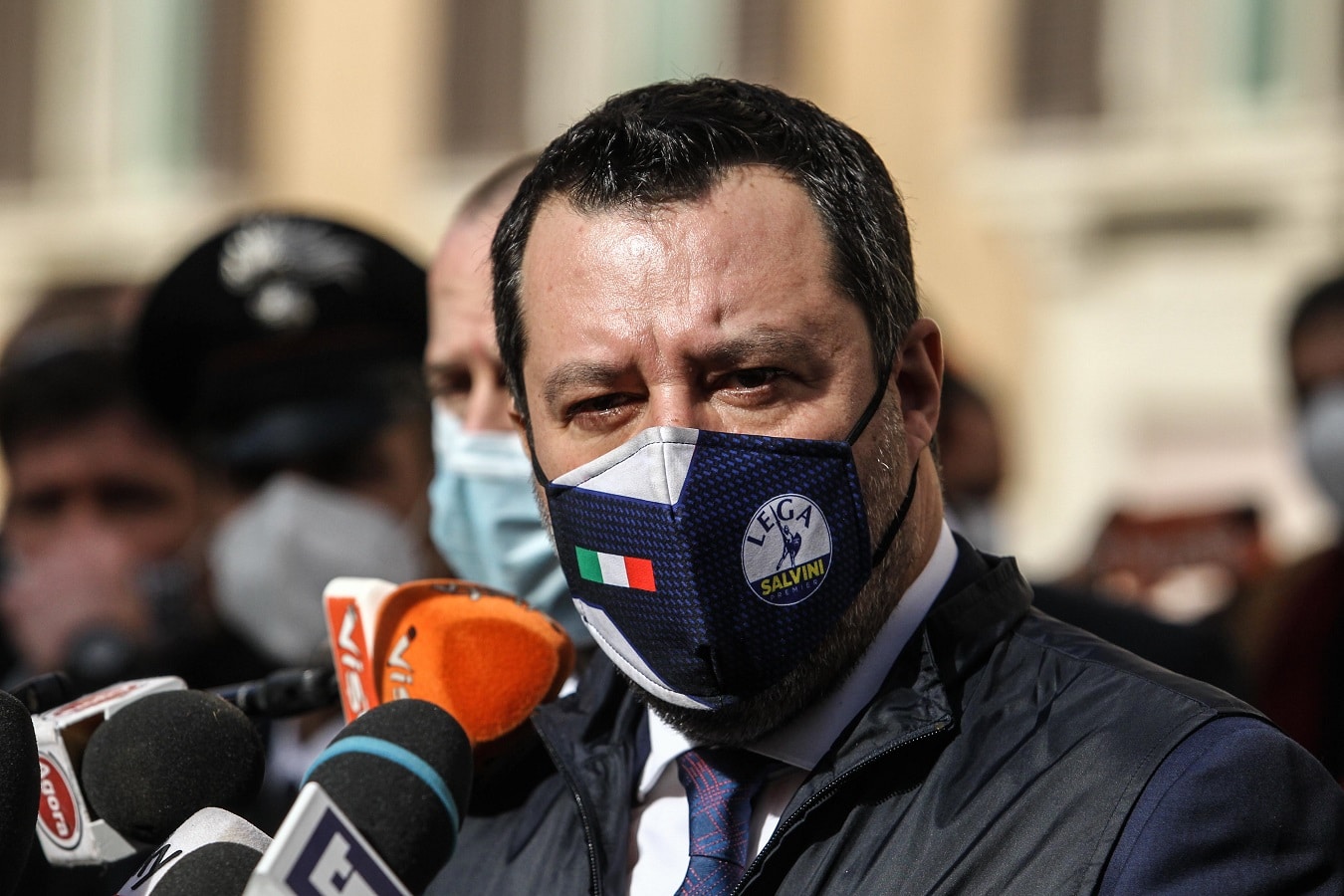League MEPs are holding true to their party’s shift towards Europeanism and moderation, as they voted in favour of Europe’s recovery plan for the first time and began distancing themselves from their fellow nationalist MEPs. Will they prove themselves worthy of entering the European party of moderate conservatives?
On Tuesday evening, League MEPs – traditionally bent on nationalist, Eurosceptic positions – signalled a radical change in direction, as they confirmed they would vote in favour of the European Recovery and Resilience Facility, backing the shared recovery effort for the first time.
The move starkly contrasts with the history of the Italian right-wing party, and clashes with the official line of the European party to which it belongs, Identity and Democracy (ID). However, the Italian conservatives have begun putting some distance between themselves and their fellow ID members, which include Marine Le Pen’s National Rally (RN) and Alternative for Germany (AfD).
ID could soon lose its Italian division, the biggest within the pan European party. The recent quarrel that erupted between the Italians and the Germans in ID demonstrates just how radically the League is changing its core tenets.
It all started with the League’s leader, Matteo Salvini, taking a sharp turn towards moderate and pro-European positions by guaranteeing his party’s support for Mario Draghi, former leader of the European Central Bank, now tasked with forming Italy’s next government.
The following day, ID’s deputy leader Joerg Methuen (AfD) expressed his disappointment for the League’s endorsement of Mr Draghi. The German MEP slammed the prospect of the latter leading Italy as a “bad joke,” calling the man widely credited with saving the Eurozone in 2012 a “grandmaster” in debt-making.
Shortly after, Mr Methuen was rebuked by Marco Zanni, League MEP and leader of ID, who said that “if someone abroad criticizes Professor Draghi for defending the economy, work and social peace of Europe – and of Italy, too – rather than [only] defending German interests, well, that for us wouldn’t be an accusation, but rather a merit.”
Mr Zanni’s words are a far cry from the League’s prior positions, which advocated for Italy exiting the EU and the euro, took a hard line on migration and waged war against further European integration, capitalising on the anti-EU sentiment that followed the 2008 financial crisis.
Mr Salvini himself had harshly criticised the likes of Mr Draghi and German Chancellor Angela Merkel for their pro-European integration stances. These latest developments, however, signal that the leader’s sudden pro-Europe shift is already impacting the party’s line and belief system irreversibly, rather than being a momentary choice of convenience.
Paolo Alli, Atlantic Council expert, already noted how the League’s change of tack has actually been a long time in the making. Masterminded by the party’s deputy leader Giancarlo Giorgetti, staunchly pro-EU and Atlanticist, it hints at the “normalisation” of the boisterous, populist party to restore its credibility and reliability credentials.
The League choosing to endorse an Eurocrat PM after years of anti-EU battles baffled AfD – but in truth, the Italian conservative party has its eyes set on the biggest, most influential party in the European Parliament: the European People’s Party (EPP).
According to informed sources, the League could be ready to abandon ID, spend some time among the unaffiliated, and then request to enter the EPP. That would most likely happen after the possible expulsion of Fidesz MEPs, representing the party of the illiberal Hungarian PM Viktor Orbán, which many EPP members are hoping to kick out of their group sooner rather than later.
Still, this plan is no easy feat. The German CDU MEPs, the biggest force in the EPP, recall only too well the unflattering words that Mr Salvini and his party members hurled at their former leader, Ms Merkel. Moreover, Italians are already represented in the EPP by Silvio Berlusconi’s centre-right Forza Italia party.
“We’ll judge [Mr Salvini’s new Europeanism] from the way it will be applied in practice,” said Manfred Weber, head of the EPP and self-declared enemy of all extremists and nationalists, in an interview with la Repubblica.
“Meanwhile, I find it positive that who aspires to gain a role of responsibility in Italy assumes a pro-European approach. It signals that populism doesn’t pay off.” Mr Weber also added that no plans exist for the League entering the EPP at the moment – but he seemed to leave the door open.
The League already began its atonement by shifting away from its most damning populist positions – pro-Putin, anti-EU and anti-euro, uber-nationalism, extreme anti-migration, and so on. A month ago, League MEPs had abstained – but their repositioning has just begun.








